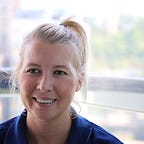Voices from Cox’s Bazar — Salima Khatun
Take a glimpse inside the world’s largest refugee camp in Cox’s Bazar, Bangladesh. In this new series, WFP gives you a glimpse of what life is like for the more than 900,000 refugees living within the camp. Salima Khatun and her family escaped violence in Myanmar and are now trying to rebuild their lives.
I had vegetable plantation and my husband was a farmer. We had two cows and a house that was made of wood and two floors high.
They burnt our houses and threw our children onto the fire. Many people were killed in my village. There was not a single house that was not burnt. We could not even go to the mosque and say a prayer because they were all burnt to the ground.
When they started burning my village from one side, we escaped from the other side. When they got hold of any child they would just throw them into the fire. We were in so much danger which is why we came here, otherwise we would not have left our motherland.
We walked for five days to get here and didn’t have time to take anything with us except the clothes we were wearing. We were so scared and would walk at night and hide during the day. We’d lie in the grass whenever we’d hear gunshots.
When we got here it was a deep forest. We had to clear room to make our home, it took us three days to make it. We got some money from Bangladeshi people when we entered into Bangladesh and we used that money to buy bamboo and plastic. Money is the biggest problem now for us because we can’t buy the thing we want.
Every day we eat rice with fresh fish, dry fish and sometimes vegetables. WFP gives us rice, oil, and split peas and I grow vegetables outside my home, but I have difficulty buying fish and meat. We don’t have much more money to buy the thing what we want to eat. In Myanmar my children used to catch fish from river so we could eat fresh fish but we can’t eat that here. My children used to earn money there and we could buy meat. Here we don’t have much money to buy big fish from the market and we are missing that. Last time we ate meat was seven months ago when there was the biggest festival, Eid ul Azha. From then we have not eaten meat because we don’t have money.
We miss our country very much because that is our mother land but whenever we remember the mass killings then do not want to go back there again.
There are more than 900,000 people living as refugees in Cox’s Bazar and WFP is providing life-saving assistance to more than 95% of them. You can support Rohingya refugees here.
